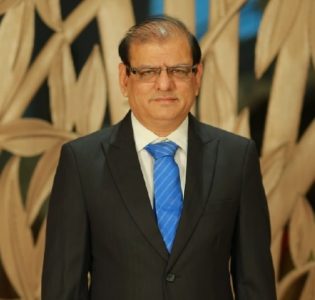Post-Covid, Dubai is focusing on a knowledge-based economy and is planning to be the hub for at least 300 startups over the next two years. To lay the road towards that destination, the emirate is offering long-term visas to professionals from across the globe to come and set up companies here, giving a boost to the digital economy.
The United Arab Emirates is one of the most important countries in the global digital economy. It is among the top 25% of countries that indicate global trends. The digital economy contributes 9.7% to the country’s GDP and 11.7% to non-oil GDP.
The aim is to double this to 19.4% of the GDP in the next ten years.
Structural Changes are Leading the way
The Dubai Chamber of Digital Economy, which is working towards building the digital business infrastructure in the country, has created four committees to give a further push. This is part of the plan to consolidate Dubai’s position as the global leader in the digital economy, said Omar Sultan Al Olama, UAE Minister of State for Artificial Intelligence, Digital Economy, and Remote Work Applications.
Besides laying the physical and digital infrastructure, the country is also offering Golden Visas, 100% ownership of companies, and four-and-a-half days a week work culture to be in line with the Western working conditions.
The Dubai Chamber of Digital Economy is also suggesting changes in laws and policies to make the emirate a more attractive destination to investors. It is holding an international conference to showcase the progress made in the digital space in the city-state over the last few years.
The Dubai 10X Policy
The Chamber has a Dubai 10X policy where companies in the emirate are positioned ten years ahead of other countries across sectors.
Dubai 10X covers several initiatives, including Digital Silk Road, which will use blockchain technology to make it easy for companies to do business with their global partners. Such initiatives will help improve the international competitiveness indices of Dubai, said Hamad Buamim, President and CEO of the Chamber.
Al Amad feels it is just a matter of a few years before the country becomes the global leader in AI, and Dubai started this journey over 20 years ago. Dubai is looking for international talent to achieve this goal, and has launched Project of the 50, where it will look to get 100 coders and programmers into the country every day for the next 365 days, said Al Olama.
These coders can contribute to the growth of other companies or launch their own startups, he said. The UAE, as of now, has over 30,000 software developers.
Al Olama said that Dubai could better tide over the disastrous effects of Covid, mainly because of its earlier digitization efforts. Be it the Internet of Things or the Fourth Industrial Revolution, which was launched in 2017; he said that Dubai has been at the forefront of adopting digital technologies helping businesses across sectors.
Dubai is now looking at a new phase of growth that digital technologies and innovations will primarily drive. It has set up the Dubai Digital Authority, which will work towards making the country the digital capital of the world. It will also aim at digitizing all aspects of life in the country, helping the growth of the digital economy.













